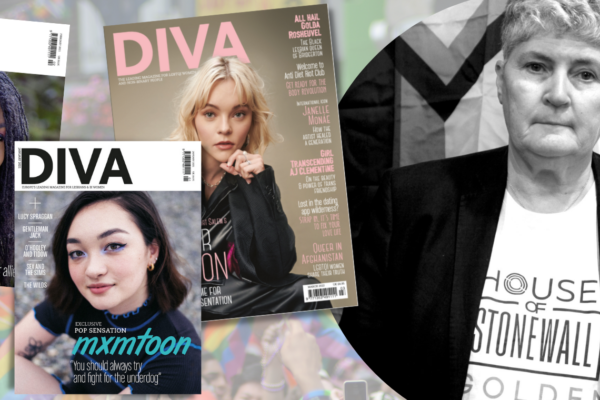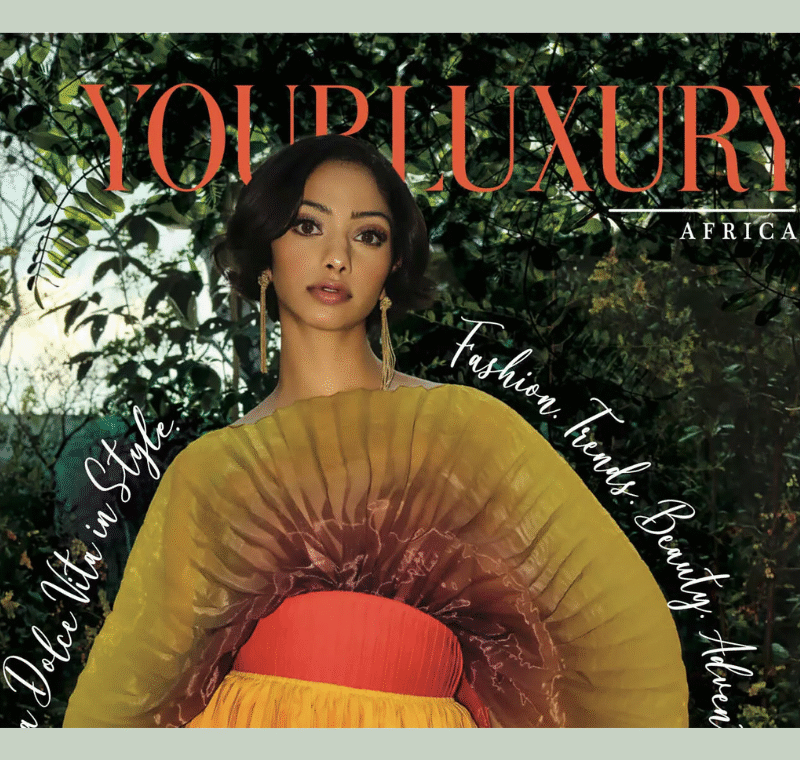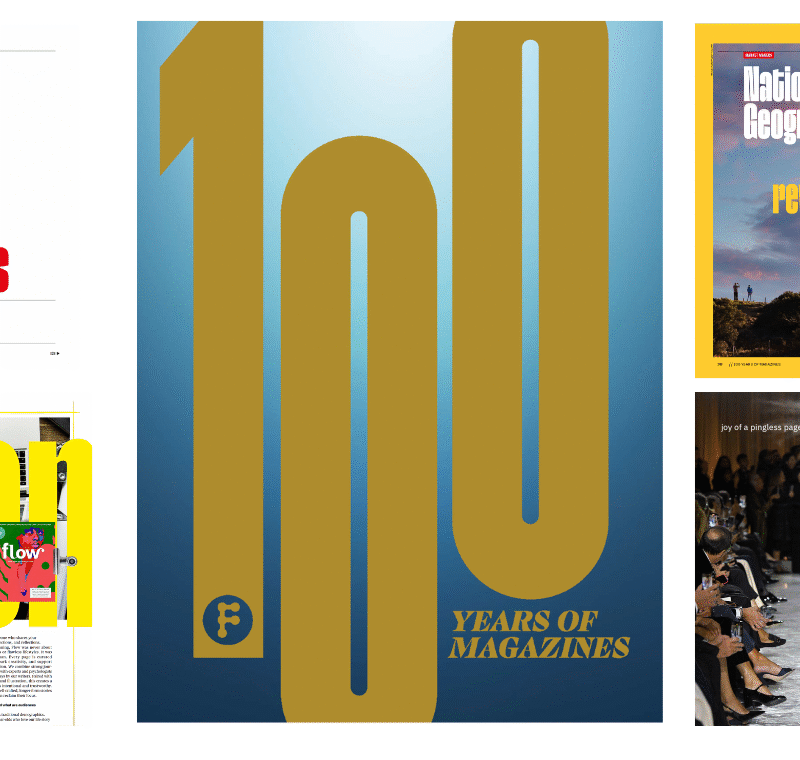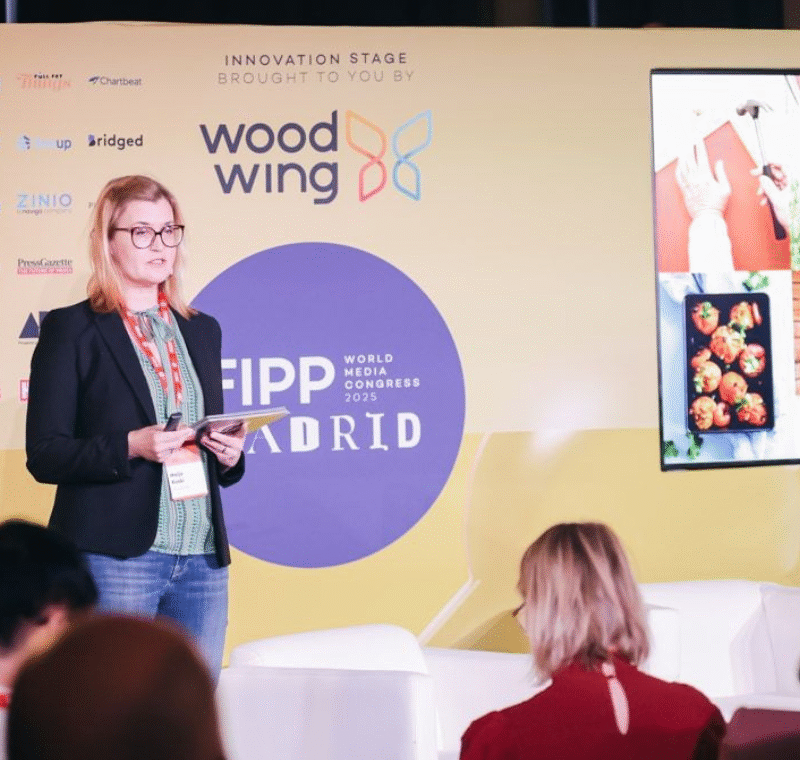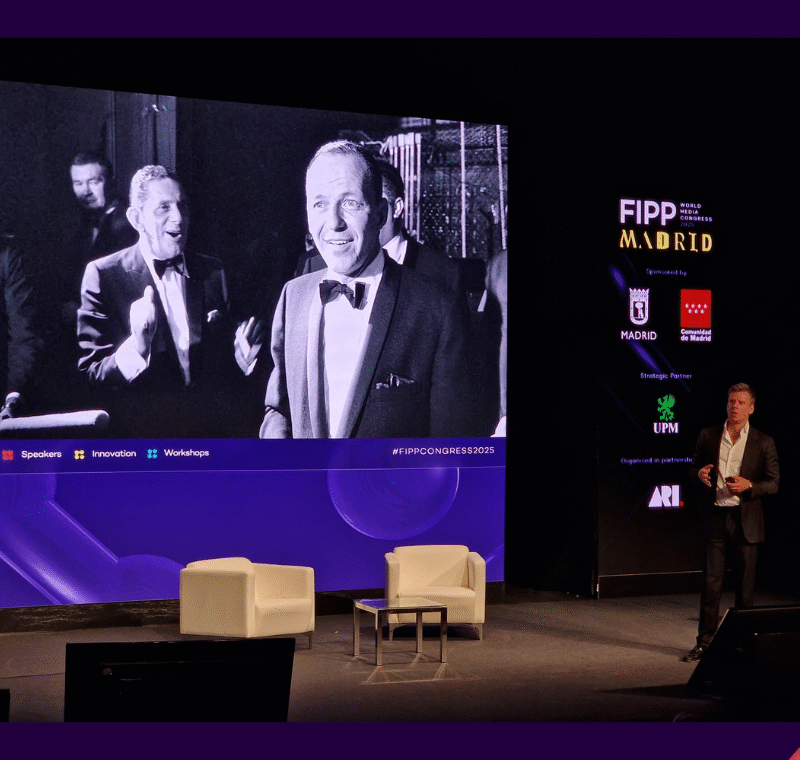Linda Riley, publisher of iconic LGBTQI women’s magazine DIVA on print, community and creating a proud legacy
DIVA began in the UK in 1994 as a print magazine specifically for lesbian women, at a time when discrimination and violence against queer people were not uncommon and the country was still two decades away from equal marriage legislation.
Since then, wider culture – and the media industry too – have transformed in ways almost unimaginable to those who came of age before the internet, including DIVA’s publisher Linda Riley, who took over in 2016. Under her leadership, DIVA has remained unquestionably one of the most iconic brands in the LGBTQI media space, beloved of both its original fanbase and newer subscribers from all over the world – while also expanding in bold new directions in response to a shifting media environment.
Drawing on her own experiences of being given shelter and support when she came out, Riley cultivates a strong sense of community with DIVA’s readership. She has consolidated DIVA’s commitment to inclusivity and social responsibility, diverting some DIVA events revenue into a foundation and not shying away from taking a stance on contemporary political issues.
“I think it’s important, having lived over 40 years in this community, to leave some kind of legacy,” she said on a recent DIVA podcast celebrating her 60th birthday.
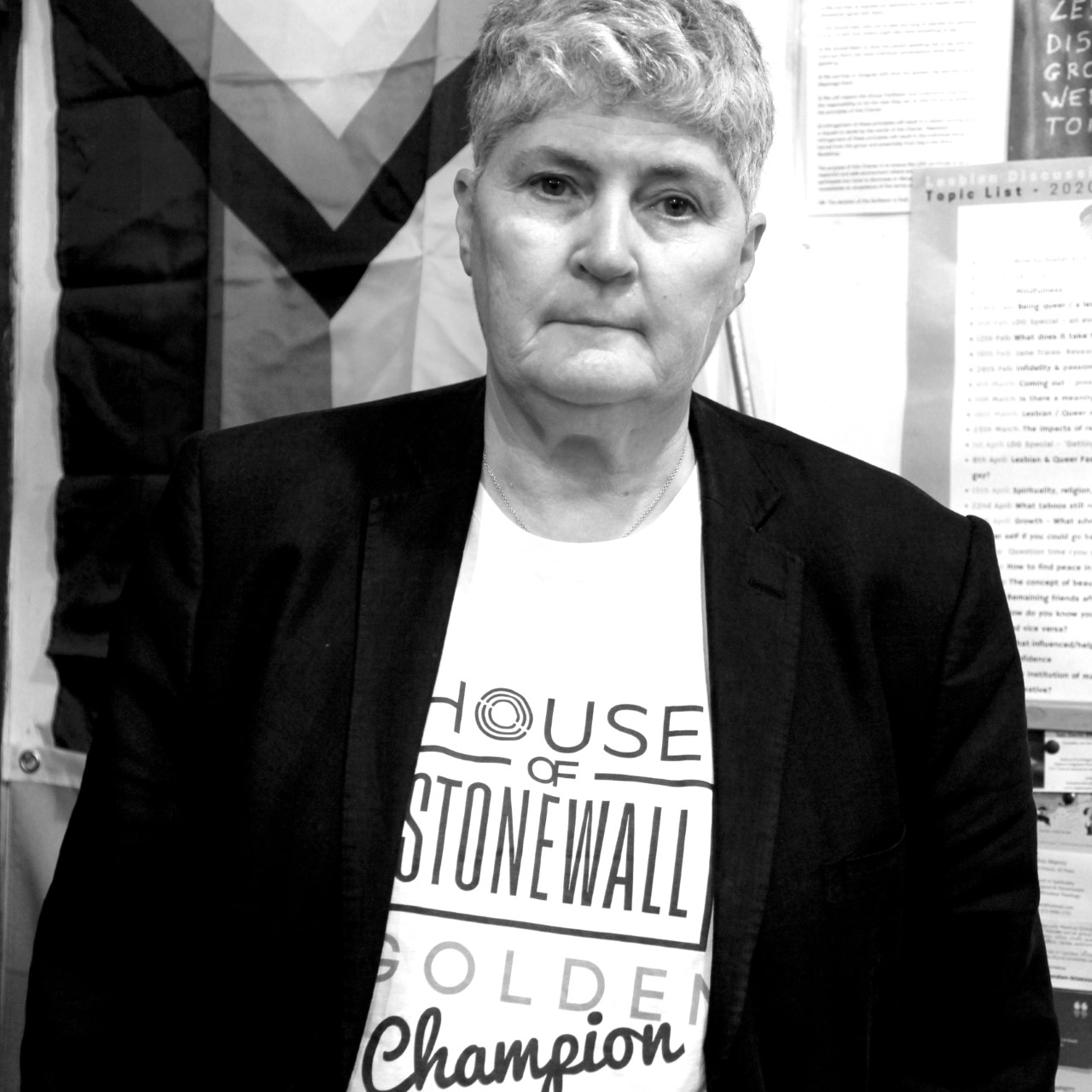
Riley’s own route into publishing was unconventional. Born to an Armenian mother on a south London council estate, she grew up poor and left school at the age of 15 – the same age at which she came out as a lesbian. She managed to find a community of queer people who looked out for her, and after years of activism and different kinds of jobs, Riley entered publishing over 20 years ago as joint publisher of both g3 and Out in the City magazine. She had started doing events for LGBTQI women in the 1990s, and was eventually approached to run DIVA – then known as the little sister of The Gay Times – which had never been owned by a lesbian before.
While at the helm of DIVA, Riley has overseen the launch of initiatives such as the European Diversity Awards, British Diversity Awards, Rainbow Honours and Pride Power List, among others. In 2020, DIVA launched the first ever DIVA Pride, online because of Covid-19. She also founded Lesbian Visibility Week in 2020, and is a former Stonewall Award winner and Business Icon of the Year from the Icon Awards 2017.
With so many exciting projects going on at DIVA, I spoke to Riley recently to hear more about how print is still at the publication’s heart, how DIVA has adapted to serve the community over its nearly three decades of existence, and much more.
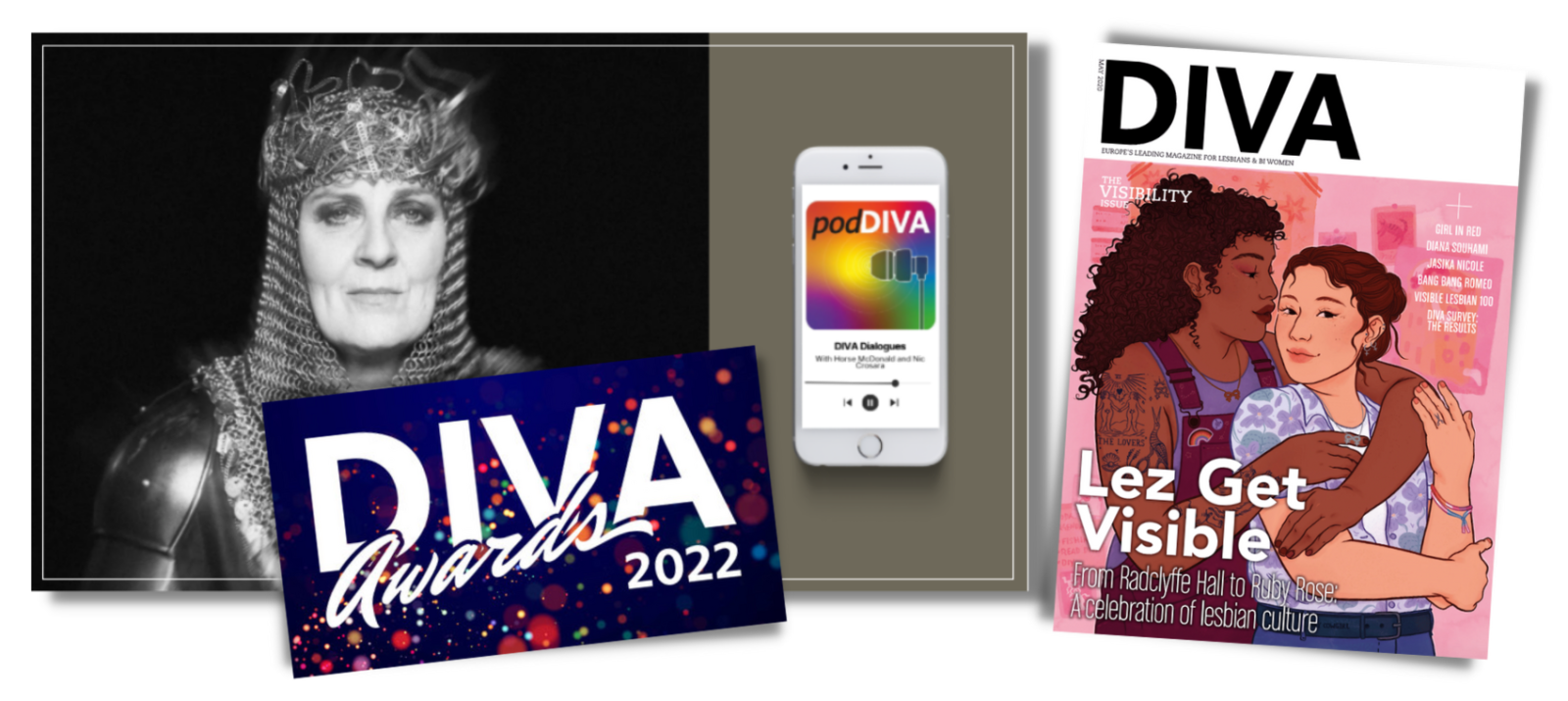
DIVA has undergone lots of changes in the past several years, including a revamped website and newer offerings like Queers for Your Ears [podcast]. Can you tell us more about this, what changed and why?
Now, DIVA is more than just a magazine. It’s a home for LGBTQI women and non-binary people not just in the UK, but globally. We’ve become a brand, and we now have the print magazine, podDIVA, DIVA Awards, DIVA Pride, DIVA Clubhouse, DIVA Community on Facebook, and all our social media platforms. Our message has become more inclusive, and more driven by the demands and consumption patterns of twenty-first-century media.
We are still the same, beloved DIVA that we were back in 1994, but with a more technologically-focused, modern drive. podDIVA relaunched in November 2021 fronted by Rachel Shelley (The L Word) and Victoria Broom (Marcella), and it’s been a huge success for us. We’ve used it to supplement our print content, so we’ve featured exclusive interviews with our cover stars including Lady Phyll, Amalia Holm and Taylor Hickson. It really gets the buzz around our print issue going, and it’s been fantastic for social media engagement.
DIVA was founded back in 1994. How has the magazine’s audience and mission changed since then?
DIVA was founded by Frances Williams in 1994, so we’ve been going for 28 years now. In that time, things have changed hugely with regards to inclusion and representation – we originally began as a magazine for lesbians, and in the 1990s, things were much different. They weren’t as inclusive and intersectional as they are now – the LGBTQI community was more factional, and LGBTQI publications mainly arose as serving one aspect of that community, so there were magazines for gay men, magazines for lesbians, etc. There wasn’t as much an understanding that content should be inclusive of all LGBTQI people under that umbrella.
I use our platform to stand up for those in our community that don’t have a voice and to let our community know that I, and DIVA as a whole, are here for them.
As time has gone on, we have rebranded to be more explicitly inclusive of queer women, non-binary people, and trans people of all colours in our readership. We were never exclusive of these important members of our community – we just made sure to change our branding from solely being a lesbian magazine to being a magazine for LGBTQI women and non-binary people. One thing I have been steadfast on since I became the first-ever lesbian publisher of DIVA is that there is no room for Trans Exclusionary Radical Feminists, who I find too often repeat myths that were spread about me when I first came out as a lesbian.
We are still very much driven by celebrity news and culture, and our mission is the same: to represent LGBTQI women and non-binary people globally and educate them on topics of interest to them. Now, we are more politically engaged than ever, actively speaking out about the tyranny in Ukraine and how best to support its LGBTQI community, alongside the shameful attacks on trans people endemic in the British media and society as a whole.
What does your own role as publisher entail?
As a publisher, I’m responsible for the overall management of the magazine. I check content for copyright and image violations and I ensure that content is aligned with our brand’s inclusivity values. I speak on behalf of DIVA at engagements and promote DIVA in my day-to-day work, and I use DIVA to promote and lift visibility for LGBTQI women, including Lesbian Visibility Week which I founded in 2020. I campaign for causes important to us at DIVA, so recently I took a stand against Pride In London and encouraged them to apologise for an incident of lesbophobia. We withdrew our partnership with Pride In London in 2021 following allegations of racism within the board and demanded the resignation of their Chair, which did subsequently happen. On the whole, I use our platform to stand up for those in our community that don’t have a voice and to let our community know that I, and DIVA as a whole, are here for them.
As long as I am publisher, DIVA will remain a print magazine as I know how important that is to our community.
We know a lot of media companies are turning towards subscriptions and d2c (direct-to-consumer) strategies for growth. Can you tell us a bit more about DIVA’s approach to subscriptions?
At DIVA, subscriptions are very special to us. We have a lot of long-standing DIVA subscribers that began reading our publication when it was founded, and still have subscriptions today. Many of our readers do have a subscription with us, whether that’s yearly or six-monthly, and these readers are more likely to engage with other aspects of the DIVA brand – so podDIVA, DIVA Community, etc. Our subscriptions work on a manual basis, so they aren’t automatically carried over. We’ve found that a lot of our subscribers are dedicated DIVA readers and will typically renew their subscriptions, which attests to the strength of DIVA’s brand. As long as I am publisher, DIVA will remain a print magazine as I know how important that is to our community.
How important are podcasts, events, and other brand extensions for DIVA in reaching new audiences?
Very important. As a brand, DIVA needs to have its message amplified. The events allow us to reach our audience in a different way, and the podcast allows us to reach an audience that we might not normally reach. We launched The DIVA Awards in 2017, and we will be having our first in-person ceremony in April 2022. This allows us to generate excitement about the DIVA brand, as well as celebrate LGBTQI women and non-binary people and their allies across business, media, sport, and more. It’s our way of giving back to the community and celebrating the people, many of whom are DIVA readers, that deserve to be celebrated.
From your perspective at DIVA, how has the LGBTQI+ media landscape at large changed since DIVA’s founding and how does this reflect broader changes in society?
It’s become more inclusive, for a start. As I said previously, LGBTQI media outlets were very simplistic in their early days, so umbrella, all-inclusive publications simply didn’t exist. DIVA was one of the first and it is one of the most long-standing, and we’ve lost a lot of publications along the way, Gay Star News included.
Now, publications are more inclusive in their reach, so publications like Attitude and Gay Times that originally existed for gay men are now inclusive of a wider range of LGBTQI people. A lot of publications have moved online, so Pink News began as a print publication, and moved solely online in 2007. Gay Times has moved solely to online publication in the last year. DIVA has a hybrid approach, and our print edition will always be very important for us and our brand, but the move to a hybrid or solely online approach is important and shows how the industry has changed. That isn’t just specific to LGBTQI publications, either.
No matter where you are in the world, you can get lost in our pages. We ship internationally via https://t.co/dB1bxdpRFa and you can download the digital issue via https://t.co/jRuTHSM8Xk or the DIVA app! ? pic.twitter.com/QvfLQPBdSI
— DIVA Magazine (@DIVAmagazine) March 15, 2022
DIVA is a very inclusive media brand. How do you balance DIVA’s role as a legacy media brand for queer women, with embracing the dynamism of gender and sexual identities today?
DIVA is explicitly inclusive of LGBTQI women and non-binary people in all their forms, and that is hugely important to us. DIVA is a home for so many people, and it is important to us that trans, non-binary, intersex, bisexual, pansexual, asexual people, and many, many more feel included and represented by our brand. Of course, DIVA is a legacy media brand for many older queer women, but for the most part, we have found that original DIVA readers are very happy to embrace our inclusivity. Our content and our message remain the same – we are a home for queer women, but now, we need to embrace the twenty-first century and acknowledge and present ourselves as an inclusive publication for all LGBTQI women and non-binary people. That is fundamental to us.
At FIPP, we like to celebrate stories of success in the print space. How important is the print magazine for DIVA?
The print magazine is hugely important for DIVA, and as I said, we have a lot of longstanding subscribers. Our print issue always performs very well, and we’ve had an array of successful cover stars over the years, from Suranne Jones to KD Lang. We always platform LGBTQI women and non-binary people of contemporary importance on the cover of the print issue, and we’ve found that our covers with stars of the hit TV show The L Word have always performed well. The print magazine is, I would say, the most important element both in terms of our brand and our revenue.
Covid-19 massively changed how a lot of media companies work. What was DIVA’s response to the pandemic, both in terms of content/strategy and how your staff work?
The pandemic was quite tough on DIVA. We had to put our staff on furlough, and it was a really difficult decision to make. We stopped printing during this time to allow us to recover, resuming again in 2021. We are so grateful to everyone that supported us through this difficult time in purchasing subscriptions and back copies. Our online presence kept going, but we were restricted in the content we could produce. Now, we’re back in business and we’re thriving. We also set up the DIVA community on Facebook and on Clubhouse during that time, and now have almost 13,000 members. I saw first-hand how much DIVA meant to the community and how much of a comfort having this safe space was for so many.
What do you see as your biggest challenges and opportunities in the next few years? What are you most excited about?
We’re looking to make our big TikTok debut, which we’re super excited about. We’re also looking to become more US-focused and inclusive, and we’re set to embark on some exciting media partnerships. I am also excited about our forthcoming DIVA Awards, the biggest sit-down dinner for LGBTQI women and non-binary people across Europe, and to be having a physical event again, hosted by the amazing Sophie Ward.

